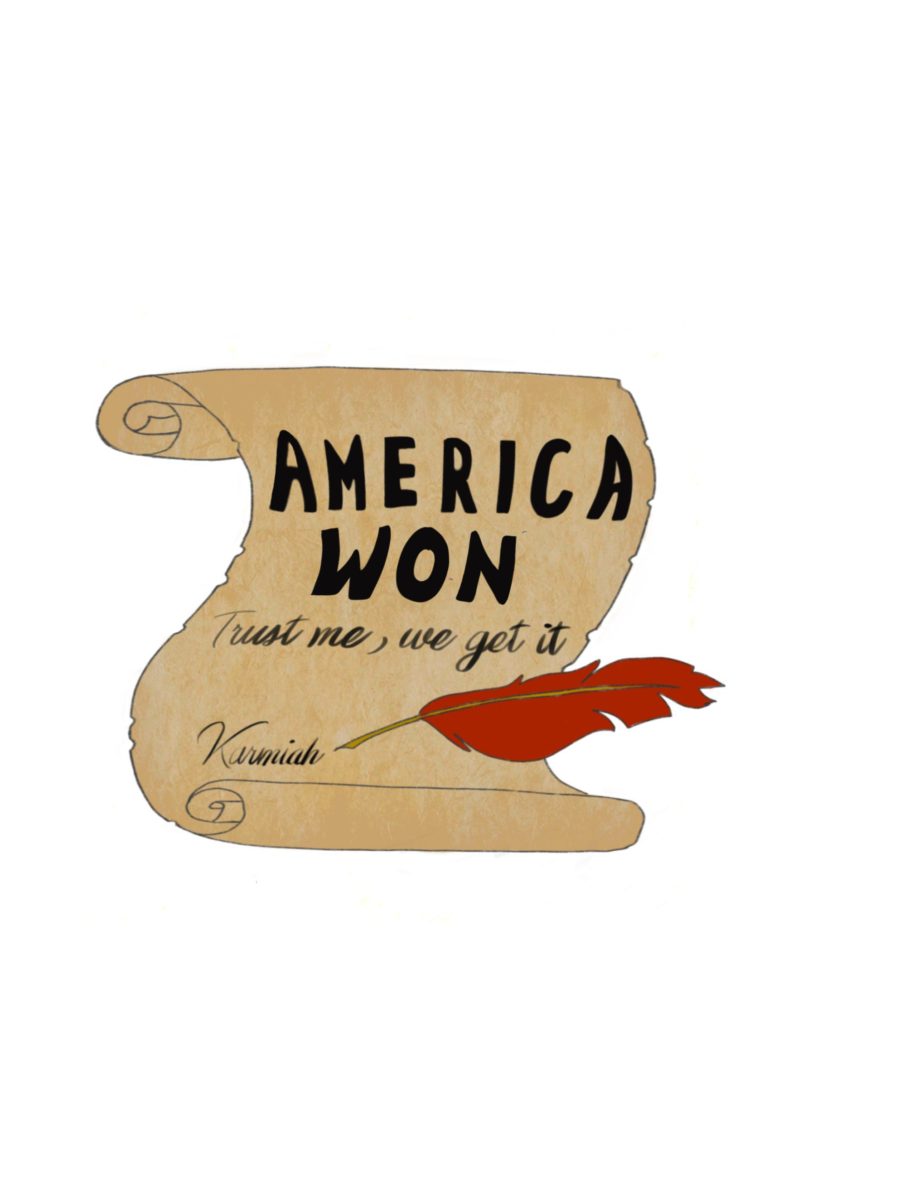The sounds of tapping pencils to desks, marker caps opening and closing, and pens clicking fills classrooms as students monotonously recite the Declaration of Independence. Teachers stand in front of their students with glossy eyes staring back at them. Documents related to America’s history are handed out, soon to be seen only at the bottom of backpacks and strewn throughout garbage cans. This annual pattern dreaded by teachers and students alike marks the beginning of “Freedom Week.”
This oral recitation of the Declaration of Independence is required for Freedom Week, a holiday where students celebrate “the sacrifices made for freedom in the founding of this country and the values on which this country was founded,” as described by the Florida Legislature. The week calls for the dedication of at least three hours in social studies classes to reaffirm student knowledge of the Declaration of Independence.
Year after year — despite its original purpose — Freedom Week seems to leave students with a way to impress one another by how well they can draw in the lines of coloring assignments instead of any newfound knowledge. Despite the fact that this holiday has been running for over 20 years, I still do not see the purpose of sitting in a classroom and hearing about the same things I have heard since kindergarten. The original intent of Freedom Week was to allow students to learn about their country’s history and its upbringing; however, its execution serves to be yet another tiresome experience for students and teachers to deal with and gives students zero knowledge of the subject matter it attempted, and failed, to teach.
Since Freedom Week is celebrated at the end of September, the timeline for students’ social studies courses and the required holiday do not always align. For some courses, this causes teachers to fast forward their curriculum, causing some students to be confused by the abrupt change. In Advanced Placement (AP) World History, students can go from learning about 1400s trade routes in Afro-Eurasia to reciting documents from 1776 and practicing their John Hancocks.
According to a 2019 survey by the Woodrow Wilson National Fellowship Foundation, only 27 percent of those under the age of 45 across the country demonstrate a basic knowledge of American history. Clearly, American citizens have a less than average understanding of their country’s history.
Since Freedom Week is an annual holiday, students are exposed to the same content year after year. This consistency should affirm the holiday’s original intent of allowing Americans to become fluent in their knowledge of this country. Nonetheless, the problem lies in how the content is taught.
Freedom Week feels incomplete. If the goal of the holiday is to educate students and celebrate achievements, why stop at the Declaration of Independence? Yes, it is one of the most influential documents in American history, but giving students the opportunity to learn about events at a wider scale, such as the American Revolution or the Bill of Rights, can help kids better connect with the subject being laid out for them, equipping them with a fuller understanding of the topics at hand.
Some history teachers try to make the week more interactive by giving students innovative projects, such as tasking students with the creation of fake social media posts depicting the writing or signing of a revolutionary document. The project, which has been assigned to AP World History students by Kathleen O’Hara and Samuel Mick, also requires students to create comments posing as other relevant historical figures.They must base these comments on what the student believes the individual’s perspective on the document would be. It allows students to better relate themselves to the making of this country to try to draw similarities from their current world so they could be more engaged in the content itself, ultimately making the holiday more enjoyable.
Despite the hands-on learning teachers bring to the table, Freedom Week is not a week that leaves lasting impressions on students. The redundancy of the content required to be taught does not connect with students. The holiday centers on America’s separation from Britain but fails to think of ways that students can identify themselves in history and how the lasting impressions of America’s big win impacts them. Even the timing does not flow with the curriculum in history classes and instead just confuses students. Freedom Week falls short of its intended goal and has failed to enact change since its inception in 2002.
America’s independence is a monumental landmark in history that should be celebrated throughout the country. However, Freedom Week does not serve it justice. By the time the week comes to an end, we are all left with one question: “Why?”
As the end of the month draws nearer, Freedom Week is swiftly approaching. So stretch out those hands, sharpen your red, white, and blue colored pencils, and mentally prepare yourself to draw at least 10 American flags in the span of a week.
This story was originally published on The Muse on September 18, 2023.




































